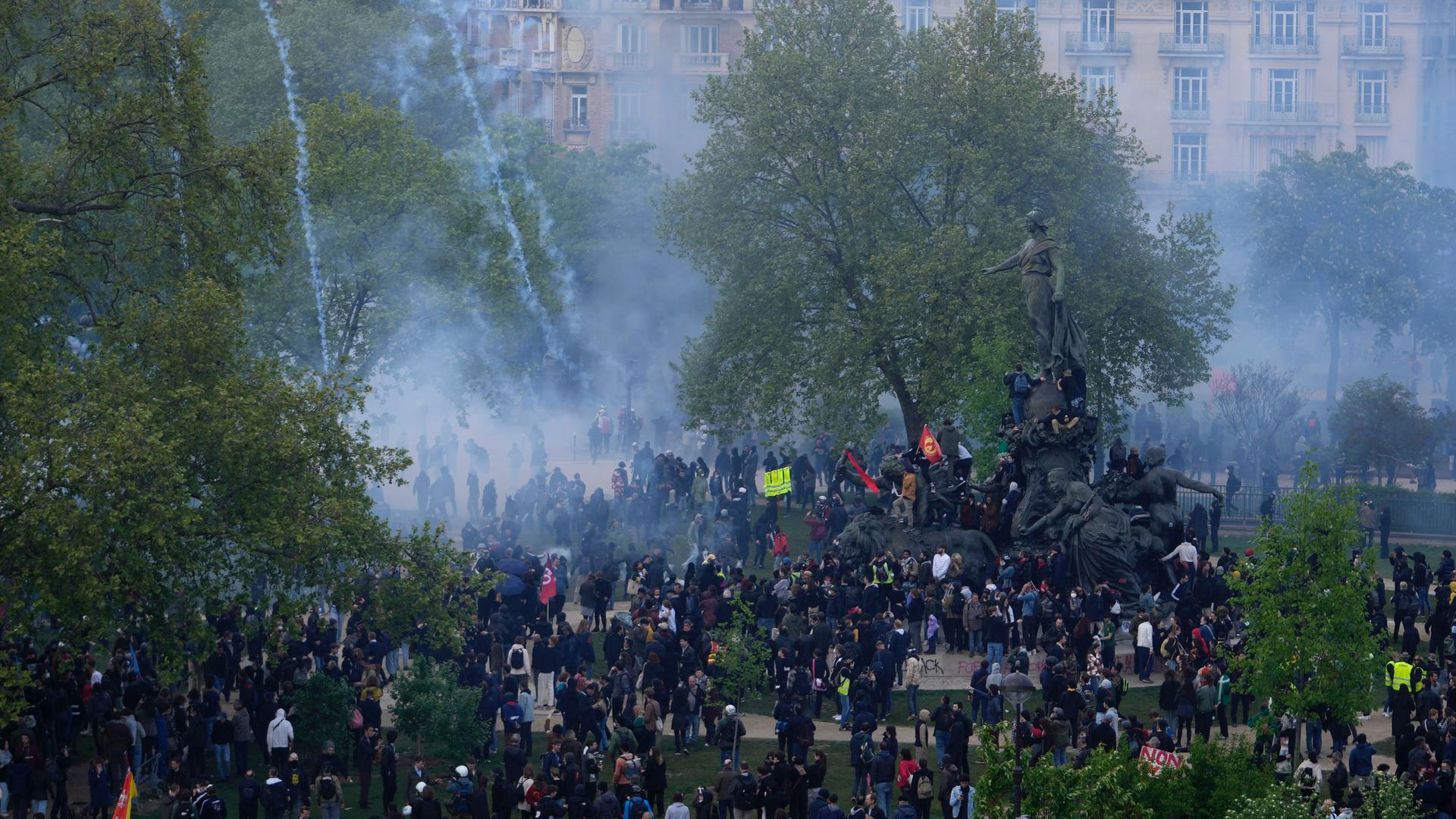Energy workers in France threaten power cuts over retirement age
France has been rocked by months of protests against Emmanuel Macron’s deeply unpopular decision to raise the retirement age from 62 to 64.
The president has forced the change through Parliament, and his government hopes it will be implemented by the fall.
But the battle is far from over.
On Monday — International Workers’ Day — hundreds of thousands took to the streets in major demonstrations. And workers in the energy sector are now threatening mass power cuts unless Macron reverses course.
Such cuts could disrupt major events planned for coming months — including the Cannes Film Festival, the French Open tennis tournament and the Monaco Formula 1 Grand Prix.
France’s largest energy union declared Wednesday a “national day of anger.”
Members of the CGT Energy Union, and other groups, gathered in Paris’s La Defense business district.
Frederic Probel, a representative of the CGT Union at the protest, defended the threat of power cuts.
“Politicians must be made to understand the energy sector’s value,” he said.
“If we don’t work, there’s no light … And we can’t carry on working until we’re in our mid-60s. That’s the message we’re trying to convey as calmly but forcefully as possible.”
Millions of people from all walks of life have taken part in more than a dozen national protest days since the pension-reform plans were announced.
Transport workers have gone on strike and rubbish collectors have let trash pile up in the streets.
But energy workers say they will be particularly hard hit.
Probel explained that the reforms will remove a special dispensation that allows those working certain jobs in electricity and gas to retire five years early.
When they do retire under the new system, their payments will be less, he said. And this means that fewer young people will be willing to join the industry.
Power cuts are a relatively common protest tactic in France. Last month, workers cut electricity at an airport and school that Macron was visiting in the south of the country.
The president’s official residence has also been targeted along with the offices of politicians who support the reforms.
At the same time, unions say they are providing free power to some schools, hospitals and other buildings — in what they call “Robin Hood” actions as energy prices rise.
“It’s good to cut politicians’ electricity,” said Guillaume, a member of an energy union at the demonstration, who declined to give his last name because of concerns about his work.
“It’s so that they can understand what life is like for real people — for people in poverty and those in precarious situations.”
Members of Macron’s government have branded such protests illegal. Prime Minister Elisabeth Borne has urged the national grid to file criminal complaints against anyone found carrying them out.
Those at the protest on Wednesday say they were well aware of the legal risks but would do whatever it takes to force Macron’s hand.
The president has called for a period of reconciliation after the unrest of the past few months. With power cuts planned and more nationwide protests already scheduled, this seems unlikely.
Our coverage reaches millions each week, but only a small fraction of listeners contribute to sustain our program. We still need 224 more people to donate $100 or $10/monthly to unlock our $67,000 match. Will you help us get there today?
